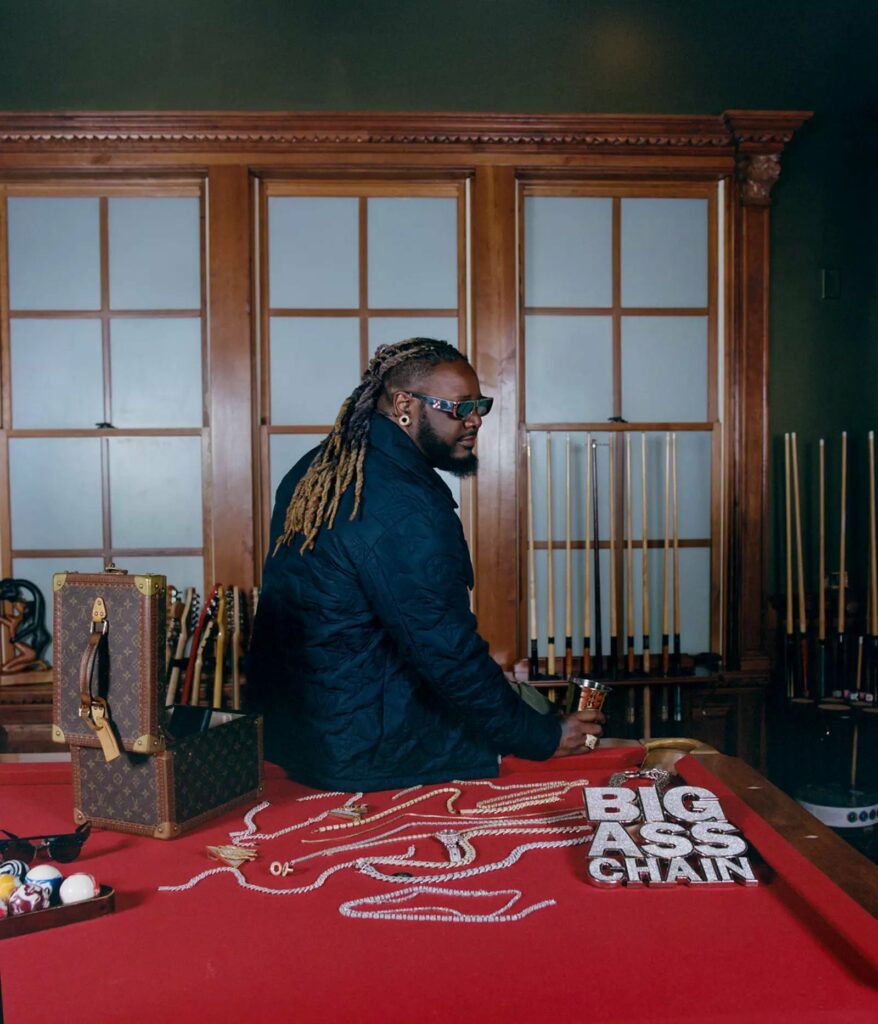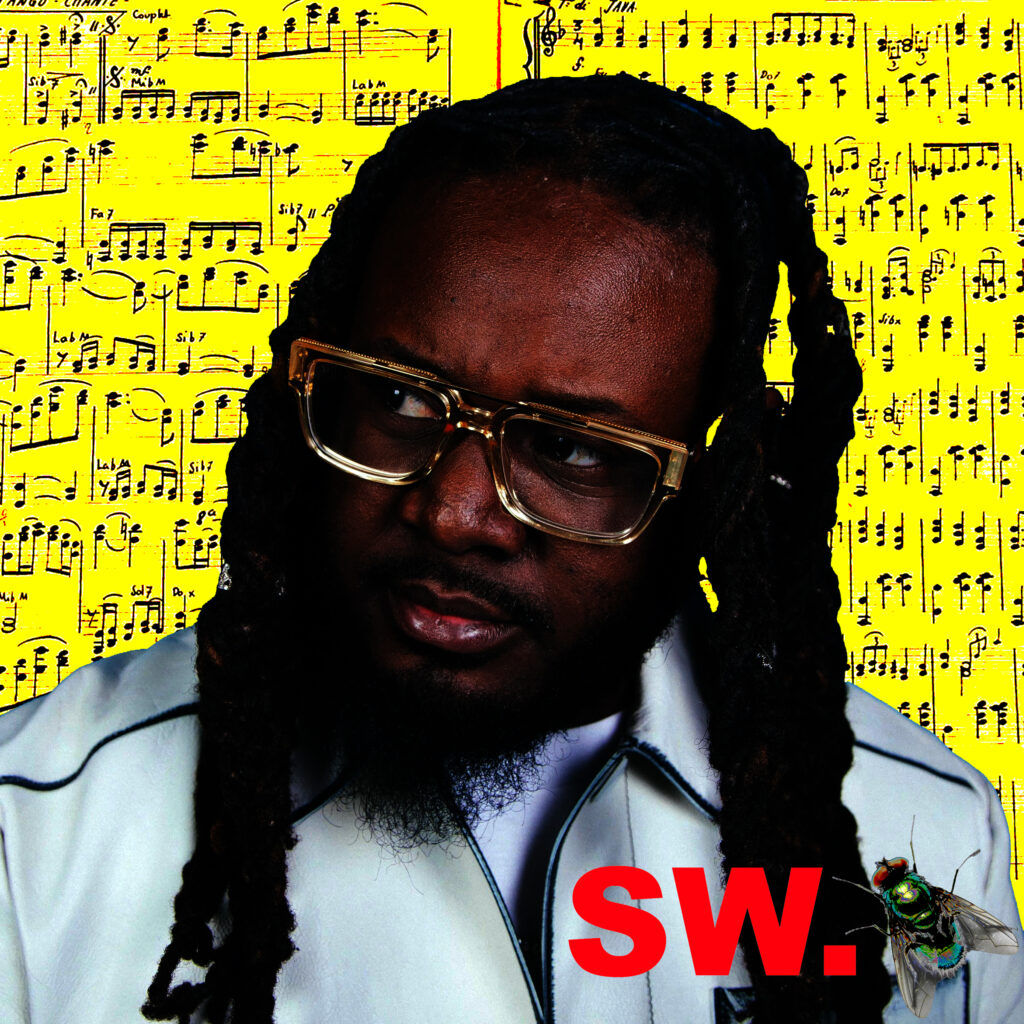A despised rapper-turned-singer meets a despised composer-turned-contrarian.
AKOUSUA LOUIS
On April 7th, 1805, 2,000 people rushed out of Vienna’s Theater an der Wien sickened with terror, choosing either to cover their ears to keep the noises they were hearing out, or cover their mouths in an effort to keep their lunches in. This unfortunate group had just heard Beethoven’s now-classic Third Symphony, which abruptly begins with two immensely strong, sharp notes. You read that and think to yourself “ah, right. Cool, I guess.” But at this time, nobody had heard anything like that at all.
As I hope you can deduce, I’m lying in that first sentence: the audience didn’t actually run out of the theater like that. But they might as well have. Across Beethoven’s entire career, each symphony he composed seemed to stir more and more hatred, his odd trajectory ditching a homogenous — and expected — straightedge in favor of stranger, more uncharted territory. In the end it turned out fine, as he obviously went on to revolutionize Western music as we know it. But in his era, a lot of people despised this fellow. In 1825, music critic Gottfried Weber wrote “Should not everyone, the dearer Beethoven and his art are to him, the more fervently wish that oblivion might very soon draw an expiatory veil on such an aberration of his muse, through which he has desecrated the glorified object, Art, and himself,” or, to translate, “this music is so horrible that I, and most other listeners, would rather have everyone on this planet die than hear it one more time.” Pretty strong sentiment there, to say the least, but these harshly written reviews directed at daring artists were far from out of the ordinary, and they still aren’t today.
“The Bucket pervades time and space, wobbling and spilling on the heads of artists from Bach to Babytron.”

A lot of people like to hate. We’re all haters at heart. As haters, consciously or subconsciously, we all know that it’s much easier to hate something when it stands out completely on its own. Even Beethoven, who was already immensely popular by the time these reviews were written, was not safe from the writhing boil of hatred that was thrown onto him. This proverbial bucket was not emptied then, though; the spigot for this bucket never stops, and the coals below it burn bright with a never-ending flame. The Bucket pervades time and space, wobbling and spilling on the heads of artists from Bach to Babytron. Over two centuries later, in reaction to his table-turning misuse of a vocal enhancer, morphing tool to instrument, this same bubbling pot materialized in Tallahassee, Florida, and splashed on to one Faheem Rasheed Najm, better known by his stage name, T-Pain.
I know, I know, I mentioned T-Pain and Beethoven within the same breath. You can go ahead and wash the vomit out of your hands, the hard part is over. Regardless of what you think of their music, both Beethoven and T-Pain are artists that belong in the same revolutionary echelon. The ripples––nay––quakes of the ruckus their art stirred up will undoubtedly rumble until the oceans dry out. As we see time and time again in sonic discourse, when people do something unfamiliar, sirens sound between our ears because something is obviously very wrong. Depending on our mindset, this could be excitement or fear, but most of the time, it ends up being the latter.
“It sounds completely different from any other singer’s voice not because his sound aimed to emulate the “perfect” human voice, but because it aimed to dismantle the “perfect” human voice.”
T-Pain knew he had prowess as a singer, and trying his hand at a newly oversaturated R&B game, he knew he needed to do something different to stand out from all the other singers at the time. After hearing autotune in Cher’s “Believe” and J-Lo’s “If You Had My Love,” he spent the better part of a year in a blind chase for this program that, eventually, he found, and used it to concoct his first hit, “I’m Sprung.” At a time when most rap, and especially rap from Tallahassee, was more “hard” (see: misogynistic), T-Pain was on CDs singing his computerized heart out and professing his love for his wife. A lot of people heard this music and were taken aback in the same manner as Beethoven’s fans, the R&B side denying T-Pain’s singing prowess and refusing him a spot in their lexicon, while the rap side regarded him as soft and denied his spot in theirs as well. From every direction, T-Pain was turned away from the industry — even to the point where his friend, and arguably the best singer in the world at this point in time, Usher, pulled him aside on a plane ride and told him he was “ruining music.”
But, as a wise man once said, “good dope sell itself,” and boy, T-Pain had good dope. In the year 2007 alone, T-Pain had 8 songs hit the top 5 on the Billboard charts. While these artists talked down on Pain, they knew that a feature from him damn near guaranteed them a hit, so they indulged. The top charts were painted multiple coats thick with Pain’s name for years, but, still, the hate persisted. One of the biggest running jokes in music for a long stretch of time was the seemingly endless “autotune sucks” shtick, and the crux of these jokes, where the fingers were pointed time and time again, was always T-Pain. This is The Bucket. The feeling of the best singer in the world telling you that you ruined music? Then the entire world joining in an ensemble singing their laments of your existence? That burns. That burns bad. While Beethoven was able to withstand some splashes, at the end of the day, he was a white man. T-Pain is a Black man in America in the internet age. T-Pain was the most hated figure in all of music for half a decade. T-Pain saw Hell.
There was at least one man that saw his vision, though, and his name was Kanye West. The insanely talented and creative artist that West is, his ears perked up to T-Pain’s sound. As Pain reported in his own words, “[Kanye] said he loved ‘Rappa Ternt Sanga,’ he realized that ‘Rappa Ternt Sanga’ was a bunch of love songs with a ton of bass in them, ergo, ‘808s and Heartbreaks.’” When you ask almost any popular 2020s rapper their favorite album, 808s and Heartbreaks is undoubtedly featured high on that list, and credited with the beginning of a rap revolution in which rappers began to harmonize with the help of autotune and open up about their feelings. Sound familiar? Kanye redid Pain’s Rappa Ternt Sanga and got all the credit for the waves it caused. Admittedly, 808s is one of the greatest albums of all time, and copying and remaking is simply how art works. But that has got to feel bad.
T-Pain’s misuse of autotune is deeply reminiscent of the vocoder, popularized by Roger Troutman in his hit song “I Can Make You Dance.” Troutman, too, felt this same degree of heat from fans and the industry at-large for curving the lines of conventional artistry with his music, hearing the exact same warnings about the longevity of his “gimmick” shouted from the rafters. What many didn’t understand is that T-Pain wasn’t some talentless bum scamming the music industry for money and he wasn’t improving his voice to sound like a better singer. That voice serenading its wife in I’m Sprung is not human. There’s no mistaking that. T-Pain didn’t only make a career for himself, but he created a new instrument. It sounds completely different from any other singer’s voice not because his sound aimed to emulate the “perfect” human voice, but because it aimed to dismantle the “perfect” human voice. T-Pain has a phenomenal voice, but his sound acknowledged that unless you’re a Michael Jackson type, the fight for the crown of “best singer” was a losing and pointless battle to have because there are a whole lot of good singers. The point was not about proving vocal prowess, but emphasizing ingenuity in art. Intentional or not, T-Pain reconstructed a vocal tool into an instrument that directly tore apart the exclusivity of the music industry, and changed music as an art form likely until the Lord above calls us all to Kingdom.
T-Pain is getting recognition now, but he may never get the flowers he truly deserves because of the viral hate he garnered through his prime. At this point, Beethoven has all the flowers he could ever need: is it because of the time passed, or because he’s better? I’ll say that T-Pain is better and move on from that question. I love T-Pain. His music is great, firstly, but he serves as a monument to ingenuity, confidence, and humility. No matter how many YouTube videos mock him or music critics scold him, at the end of the day, his music will always have a place in my heart. It should have a place in yours, too.

